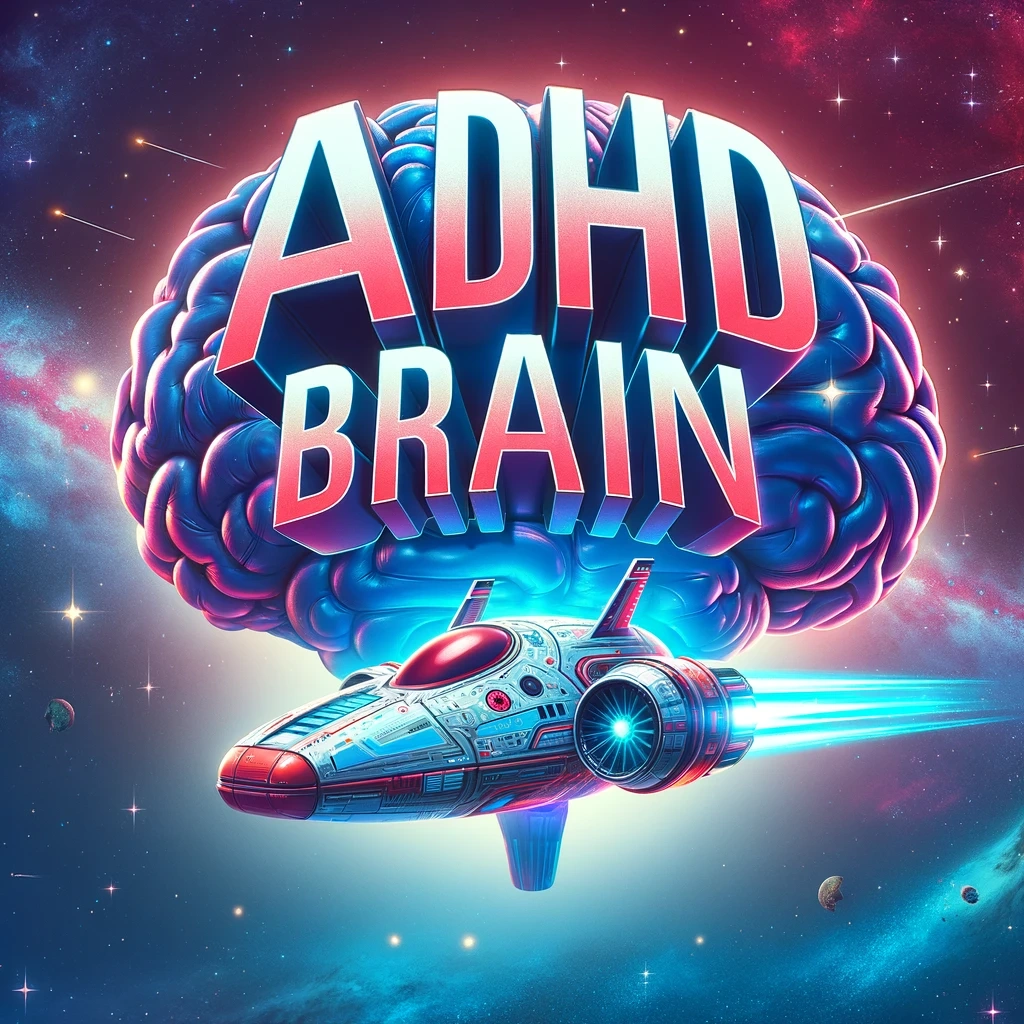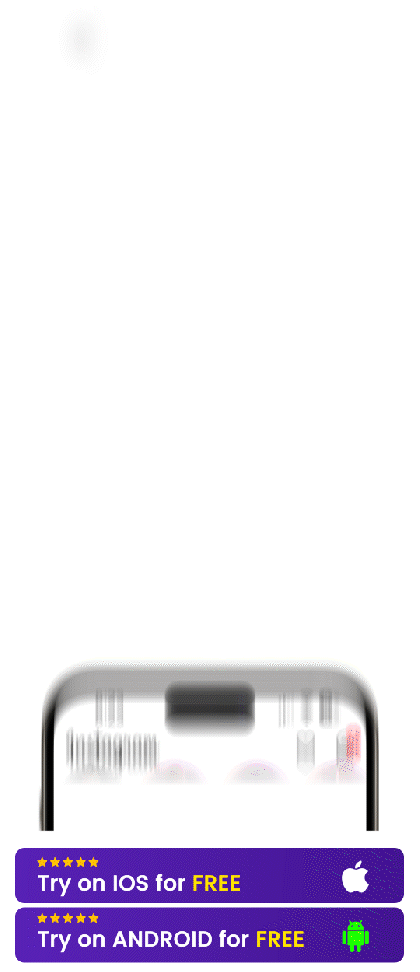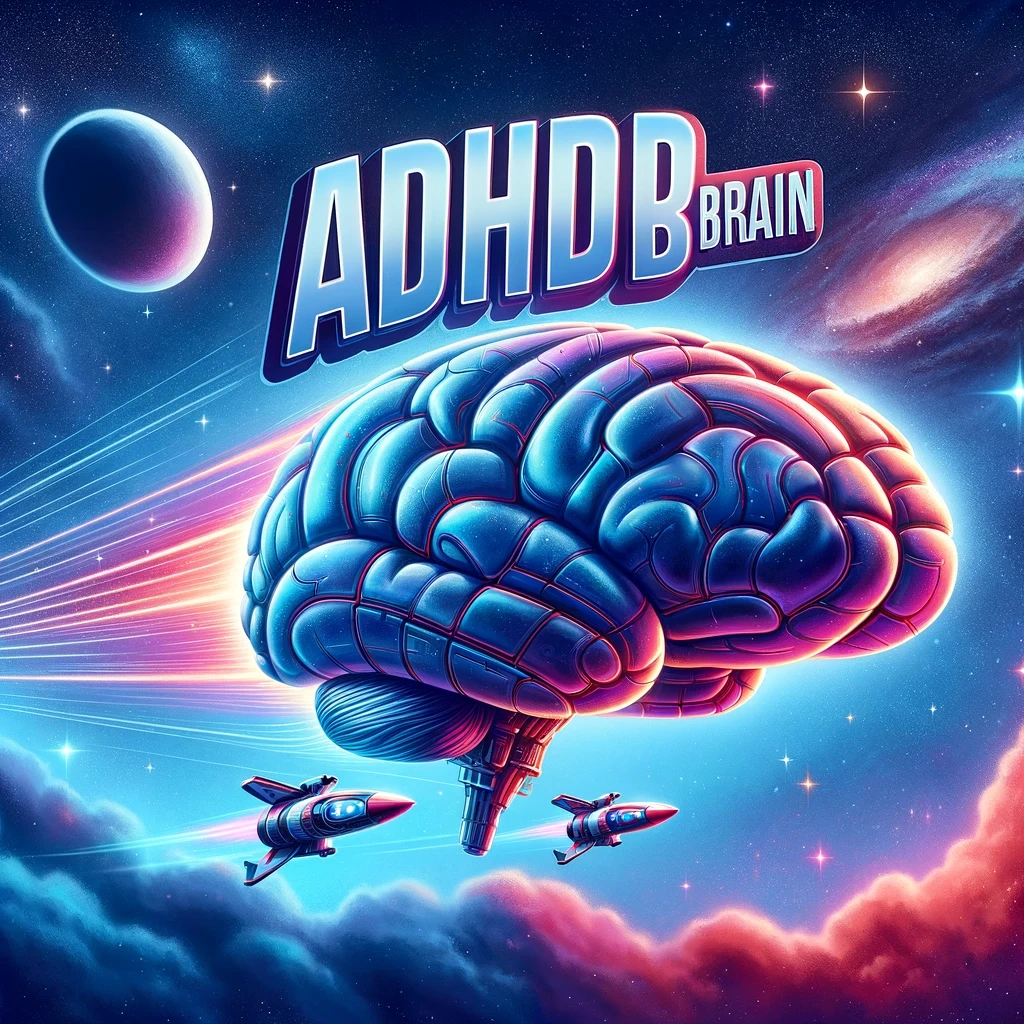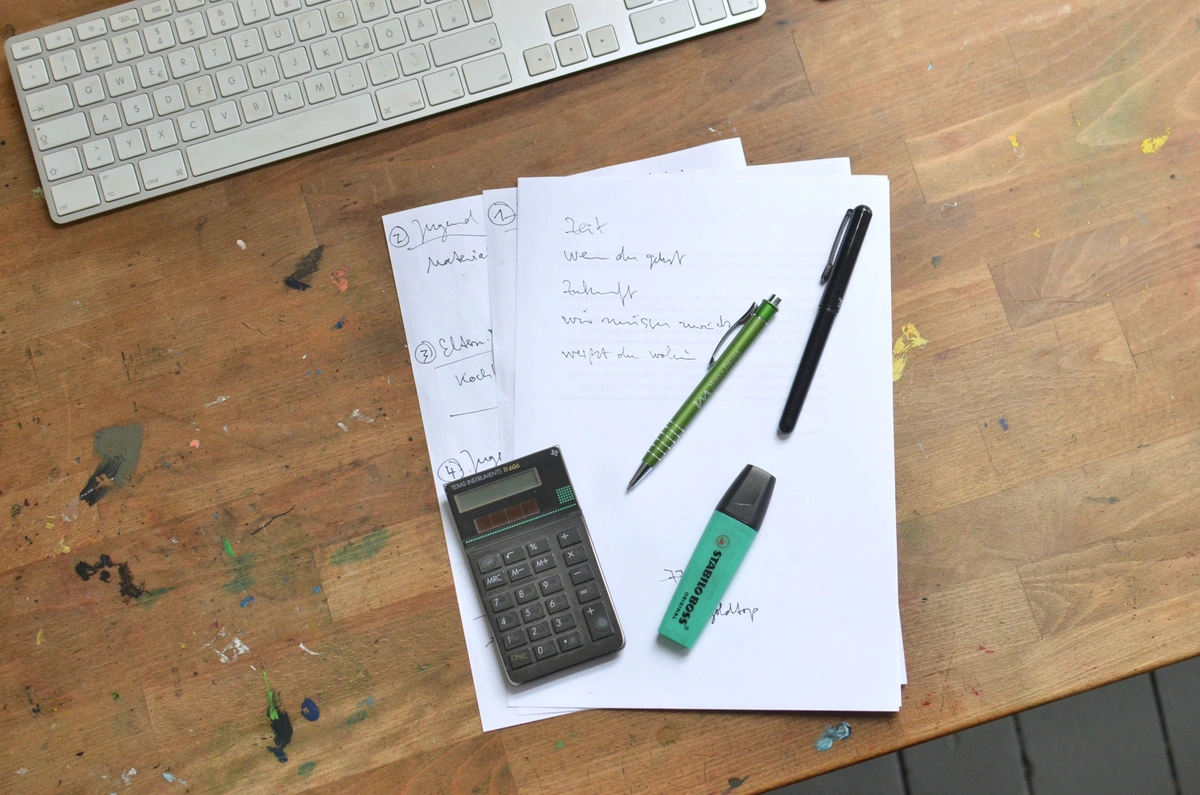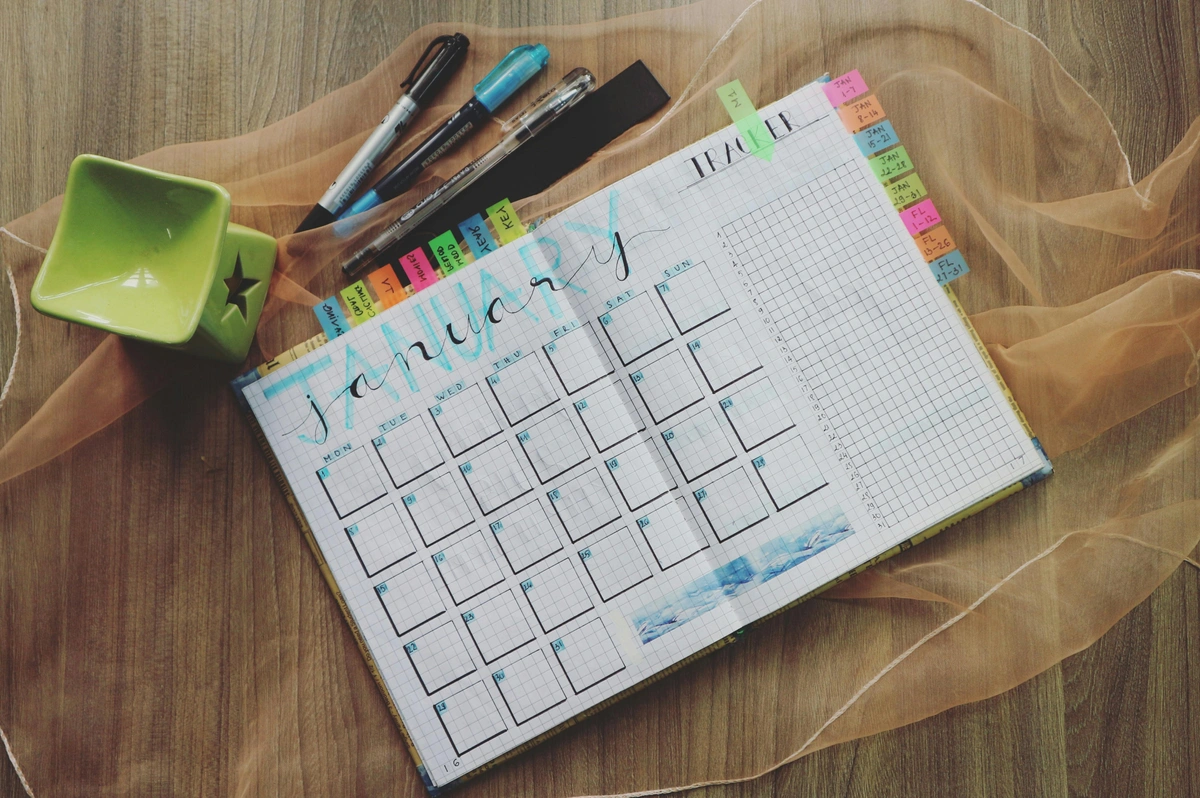Hi, I'm Jessica, and I'd like to take you through a day in my life, showcasing the unique landscape of my ADHD brain. It's a bit like being in a whirlwind of thoughts and ideas, each vying for attention, yet somehow, it all comes together in a way that's distinctly me.
My mornings are an energetic mix of creativity and chaos. As soon as I wake up, my mind is already several steps ahead, planning and re-planning my day. It's like having a mental pinball machine, with thoughts bouncing around at high speed. I've learned to jot down these early morning thoughts, as they often contain some of my best ideas.
At work, my ADHD brain can be both a superpower and a hurdle. During meetings, while others are focused on the agenda, my mind often embarks on its own journey, connecting seemingly unrelated dots that can lead to innovative ideas. The challenge, though, is not getting too sidetracked by these mental excursions. This is where BeTimeful comes in handy. Its newsfeed blocker feature helps me stay focused, especially when I need to concentrate on the task at hand. It filters out the noise, allowing me to channel my creativity productively.
Lunch breaks are my time for a mental reset. While I often choose activities that ground me – like a walk in the park, a short meditation, or simply sitting quietly and observing the world – these moments of stillness amidst my usually bustling thoughts act like a reset button, helping me refocus for the afternoon. It's also the perfect time to take a break and catch up on social media, knowing that BeTimeful has helped me manage my online time effectively during work hours. This balance of focused work and leisurely social media browsing keeps my day structured yet flexible, catering to the unique rhythm of my ADHD brain. You can finally stay connected, productive, and NOT distracted with BeTimeful's Andriod App and iPhone App!
Back at work, I rely on a set of strategies to manage my focus. I've learned that embracing the unique workings of my ADHD brain is crucial. I use techniques like breaking tasks into smaller, manageable chunks and setting frequent, short-term goals. These approaches help me channel my energy and maintain productivity.
As the day winds down, I often reflect on the vibrant and dynamic nature of my ADHD brain. It's a landscape where ideas flow like a river, sometimes meandering, sometimes rushing, but always moving. The challenges are real, but they are far outweighed by the sense of endless possibility and creativity. Living with an ADHD brain is an adventure, and I'm here for the ride."
Secrets of the ADHD Brain: Unveiling the Mysteries
Takeaways:
- Understanding the unique workings of the ADHD brain.
- Strategies for managing ADHD effectively.
- The role of lifestyle changes in managing ADHD.
Table of Contents:
- The ADHD Brain: A Unique Landscape
- Strategies for Managing ADHD
- Lifestyle Changes and ADHD
- Frequently Asked Questions
- Conclusion
- Credible Sources
Introduction
Why did the brain with ADHD cross the road? To get to the other... Squirrel! Jokes aside, the ADHD brain is a fascinating and complex subject. It's like a browser with 3000 tabs open - all the time. But fear not! We're here to explore this unique landscape, offering insights and strategies to navigate it effectively.
1. The ADHD Brain: A Unique Landscape
The ADHD brain isn't just your run-of-the-mill cerebral matter. It's wired differently, leading to unique challenges and strengths. Understanding these nuances is key to managing ADHD effectively. For instance, finding the right planners for ADHD can be a game-changer in organizing the often chaotic ADHD mind.
Imagine your brain is like a super cool spaceship. This spaceship is where all your thoughts, feelings, and how you pay attention are controlled. Now, in some people, like those with an ADHD brain, their spaceship is a bit different. It's special!
In this special spaceship, the parts that help you focus, sit still, and wait your turn work a bit differently. It's like having a spaceship with super-fast engines and lots of buttons that light up all at once. This means that people with an ADHD brain often feel like they have a million ideas at the same time, and they want to explore all of them right now!
You know how when you're playing, and you suddenly get excited about another toy? That's a bit like how the ADHD brain works. It gets excited about lots of things very quickly and sometimes finds it hard to stick to just one thing.
Also, in our spaceship brain, there's something called 'dopamine.' Dopamine is like the fuel that helps the spaceship fly. Everyone's brain needs dopamine, but in ADHD brains, they might not have enough of it in certain parts of the spaceship. This can make it harder to focus or feel calm.
But remember, having an ADHD brain is not a bad thing. It's just different. It means you might be really creative, full of energy, and always ready for new adventures. It's like having a spaceship that's always ready to zoom to new planets and explore new stars!
2. Strategies for Managing ADHD
Managing ADHD isn't just about medication; it's about strategy. One effective approach is participating in a dopamine detox challenge. This helps in recalibrating the brain's reward system, which can be particularly beneficial for those struggling with phone addiction or the need to block porn on an iPad. Managing ADHD is a multifaceted approach that goes beyond medication. It involves implementing practical strategies such as establishing routines, using organizational tools, and embracing practices like mindfulness. Incorporating physical activity and considering a detox from overstimulating activities can also make a significant difference. For those looking to reduce digital distractions, opting for dumb phones in 2023 could be a step in the right direction. Remember, understanding and working within your unique set of challenges is the key to effectively managing ADHD.
Establish Routines:
For individuals with ADHD, consistency is key. Establishing a daily routine can help manage expectations and reduce anxiety. This includes having a consistent wake-up time, meal times, work or study blocks, and relaxation times. It's not just about having a schedule, but about creating a rhythm that the brain can learn and anticipate.
Organizational Tools:
Using organizational tools such as planners, apps, or calendars can greatly aid those with ADHD. These tools can help in breaking down tasks into smaller, manageable steps and setting reminders for important deadlines or appointments.
Mindfulness and Meditation
Practices like mindfulness and meditation can improve focus and reduce impulsivity, which are common challenges for those with ADHD. Engaging in these practices regularly can help train the mind to stay present and lessen the need for constant stimulation.
Exercise
Regular physical activity is highly beneficial for managing ADHD. Exercise increases the brain's dopamine, norepinephrine, and serotonin levels, which affect focus and attention. Incorporating a regular exercise regimen can help improve concentration and mood.
3. Lifestyle Changes and ADHD
Lifestyle changes can significantly impact ADHD management. This includes understanding the reasons you can't focus on work and how to overcome them. Additionally, considering the pros and cons of quitting social media or simply disconnecting from social media can be beneficial. These changes help in reducing distractions and improving focus.
Strategic Unplugging: Social Media Detox
Participating in a social media detox can be particularly useful. It's an opportunity to disconnect from high-dopamine activities that might exacerbate ADHD symptoms. The process of unplugging can help individuals regain control over their attention and reduce the urge for instant gratification.
Embrace Low-Tech Solutions: Dumb Phones
For some, smart devices can be a constant source of distraction. Consider switching to dumb phones in 2023 to minimize interruptions and reduce the temptation to check notifications frequently.
Dietary Adjustments
Some people with ADHD find that certain foods can either worsen or improve their symptoms. A balanced diet with less sugar and more protein can help stabilize energy levels and improve concentration.
Professional Support
It's important to work with healthcare professionals to manage ADHD. This may include therapists, counselors, or ADHD coaches who can provide strategies tailored to individual needs.
4. Frequently Asked Questions
Q: How does ADHD affect daily life? A: ADHD can make daily tasks challenging due to issues with focus, impulsivity, and organization. However, with the right strategies and tools, these challenges can be managed effectively.
Q: Can lifestyle changes really help with ADHD? A: Absolutely! Simple changes, like engaging in a digital detox or being mindful of the effects of social media on body image, can make a significant difference.
Q: Are there any benefits to having ADHD? A: Yes, many individuals with ADHD exhibit high levels of creativity, energy, and the ability to think outside the box.
5. Conclusion
Understanding the nuances of the ADHD brain is like unlocking a door to a room full of untapped potential. It's not just about managing a condition; it's about leveraging unique abilities for growth and success. The journey towards this understanding often starts with customizing organizational methods—such as staying focused with tailored planners that cater to the ADHD mind's need for visual aids and immediate rewards.
Implementing lifestyle changes plays a crucial role as well. It could mean adopting time blocking techniques to structure the day into manageable chunks, allowing for deep focus during peak mental periods. Or it might involve integrating the best productivity hacks of 2023 into daily life to optimize how one works and plays, ensuring that each action is intentional and impactful.
Staying motivated can be a challenge for individuals with ADHD, but it's not insurmountable. By understanding intrinsic motivators and exploring staying motivated strategies, one can consistently fuel their drive towards personal and professional milestones. Additionally, adopting the philosophy of the art of doing less to do more (a productivity hack) can be a game-changer, teaching the value of prioritization and the power of saying 'no' to focus on what truly matters.
For students with ADHD, how to focus on studies without getting distracted is a crucial skill. It's about creating an environment conducive to learning and employing strategies that mitigate the allure of distractions.
Lastly, effective tips for time management are indispensable. These tips are not just about managing the clock but about understanding the unique rhythm of the ADHD brain and setting up a life that flows with it, not against it.
In essence, each step towards understanding and managing ADHD is not just a step away from its challenges but a step towards mastering the art of living with a vibrant, fast-paced, and incredibly creative mind. With the right tools and approaches, the ADHD brain is not a hindrance but a powerful ally in carving out a fulfilling path in life.
6. Credible Sources
For further reading and credible information on ADHD, consider exploring these resources:
- Children and Adults with Attention-Deficit/Hyperactivity Disorder (CHADD)
- Attention Deficit Disorder Association (ADDA)
- National Institute of Mental Health (NIMH)
Remember, the ADHD brain is not a limitation, but a different way of seeing and interacting with the world. Embrace it!

